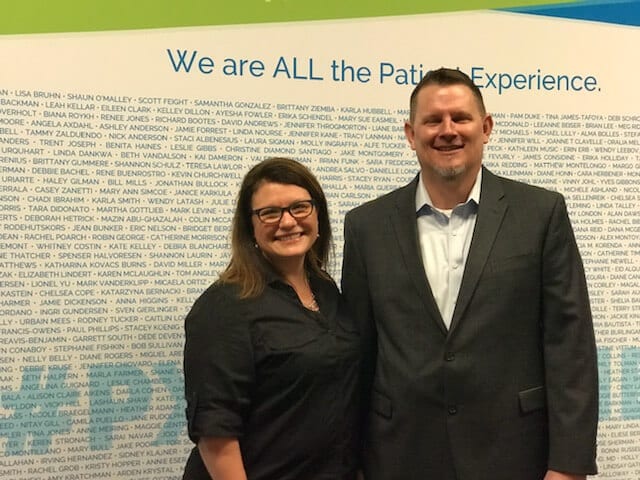
I recently had the pleasure of presenting at The Beryl Institute’s PX2018 Conference in Chicago. For those of us attending from MN, we were oh so glad to be out of the 15 inches of snow that fell the weekend before the conference!
While I’ve had the privilege of presenting at past conferences for The Beryl Institute, this time I was accompanied by a talented leader, James Galloway (Director of Environmental Services and Linen at SSM Health Saint Louis University Hospital). James and I shared about our journey together at Saint Louis University Hospital in a session entitled “Transforming Organizational Culture through Focused Improvements in Environmental Services.”
In case you missed it, I thought it would be fun to recap a bit of that session and provide an opportunity to download a copy of the case study.
St. Louis University Hospital is an Academic Medical Center owned by SSM Health and affiliated with the medical school and teaching programs at St Louis University. The hospital is in the inner city of St. Louis and is a safety net, level 1 trauma center known for its transplant, cardiovascular and stroke programs. Previously with Tenet, it was sold to SSM Health in September of 2015. SSM Health is the 11th largest nonprofit healthcare provider in the country with hospitals, clinics and other care delivery sites in Missouri, Wisconsin, Oklahoma and Illinois. Part of the hospital sale transaction included a commitment for SSM Health to build a replacement hospital. Currently the new hospital is under construction and it will open in September of 2020.
In preparation for that, the leadership team is focusing on significant operational investment, improvement and culture change. One of the key pieces of this culture change involved a Courtesy & Respect Pilot. DTA was engaged to help support the leadership team in this work. The departments included were housekeeping, phlebotomy, care partners, emergency department technicians and visitor services which include patient transport and front desk staff.
The reason courtesy and respect were chosen for the pilot was because these were areas of opportunity on the patient experience survey AND they believed investing resources in courtesy and respect as part of the transition to SSM Health would connect people with their mission and was an important investment in the employees.
Each of the five departments involved in the pilot selected high performers to lead the design work as facilitated by DTA. They named themselves the CCRT or Courtesy, Care & Respect Team. Their work focused on what courtesy and respect meant to them. A distinguishing facet of this project was the partnership with the International Institute. There are many new immigrants who work at Saint Louis University Hospital, many of them in the Environmental Services Department. We wanted to make sure that the approach to this pilot would work across cultures and the Institute helped us with this.
We held training workshops for every team member in each of the five pilot departments. Each session was kicked off by 2 leaders from the areas represented, hosted by a CCRT member, and presented by DTA. These were also transitioned to internal leadership through a train-the-trainer model.
Every employee in the five pilot departments is provided with an individualized coaching session after attending the workshop. The coaching is done to observe the employee’s interactions with patients. Each participant learns what they do well and what things they could focus on to do even better. They receive a personalized confidential report that is not shared with their supervisor. It is purely an investment in their success, on how they can improve.
While individual results are kept confidential, using our Coaching Reporting Tool DTA can provide leadership with a report that shows what key care practices team members are doing well, where there are inconsistencies, and where improvement is needed. DTA also provided toolkits for each leader to help them in supporting their staff in areas of collective improvement.
To create an internally led Care Team Coaching Program, during the workshops and coaching, DTA identified individuals who have the skills and desire to become coaches. We then facilitated the coaches through a training progression. The coaches use DTA’s Coaching Reporting Tool to create and provide an individualized confidential report for each employee they coach.
The results of this team’s work, and moreover their sustainment of those results in the department long after our DTA team had left, are truly something to be proud of. But enough of me telling you about it! You can download the full case study about SSM Health Saint Louis University and learn about their tremendous success. To access – please click here.
__________________________________________________________
Photo credit: Nicole Braegelmann
